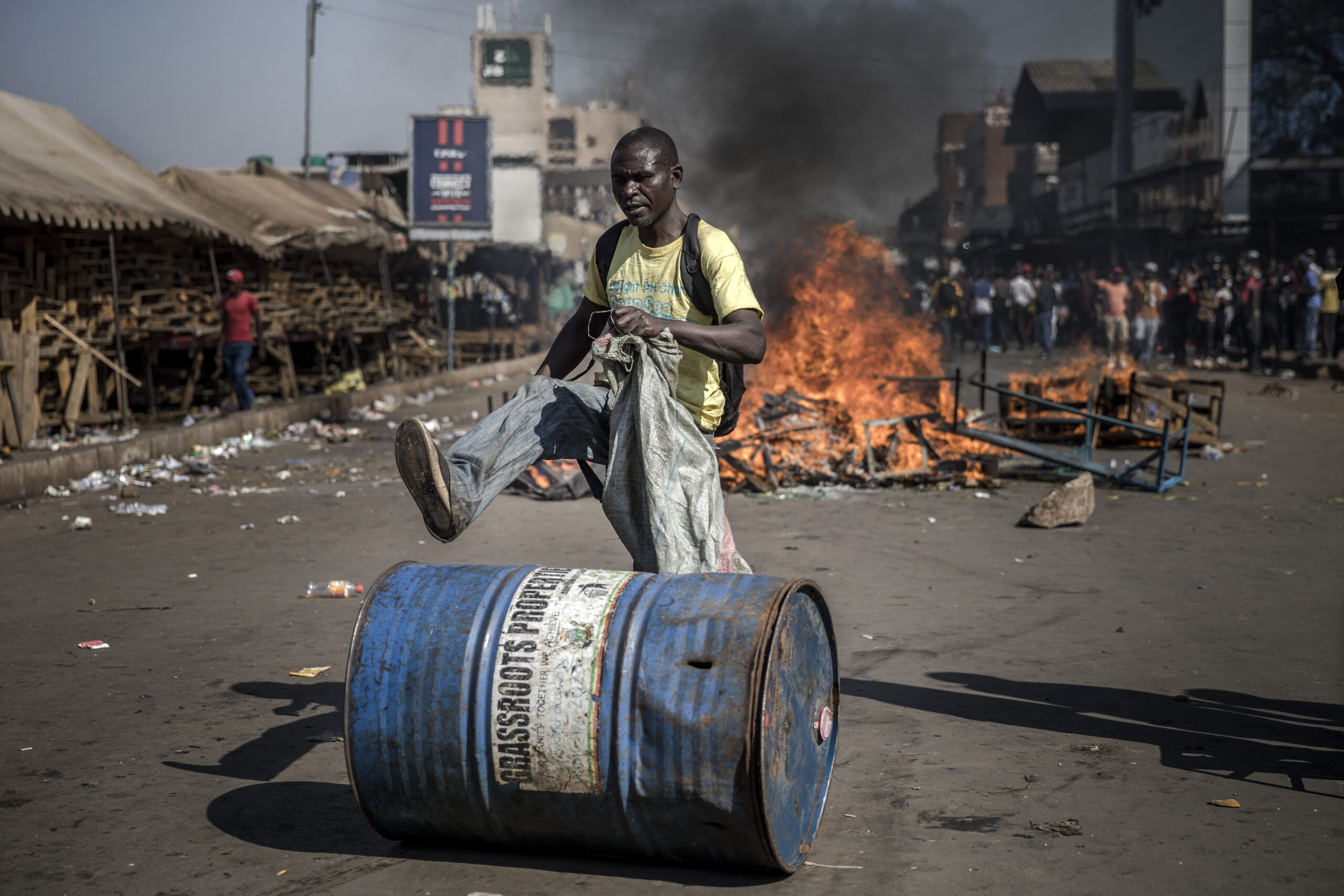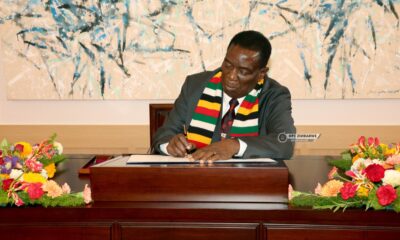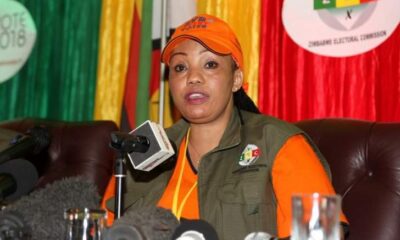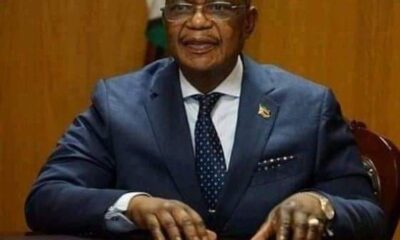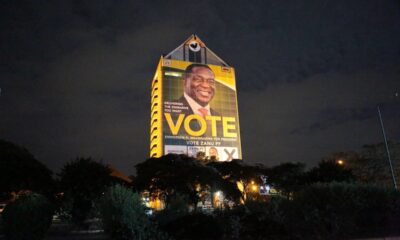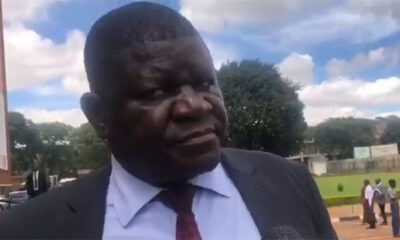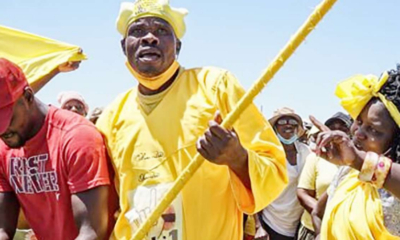THE failure by regional bodies to deal with disputed elections in Zimbabwe could lead to a possible revolution, a new report has warned.
NATHAN GUMA
Zimbabwe will hold general elections on 23 August 2023 but the pre-election process has been in a shambles, pointing to a disputed poll outcome.
Zimbabwe’s previous elections have mainly been characterised by political violence since the days of the late former president Robert Mugabe.
While President Emmerson Mnangagwa’s regime has been trying to distance itself from the excesses of the Mugabe era, the reality has pointed otherwise, with research showing that democratic space has shrunk since 2017, when he came to power on the back of a military coup.
A paper by renowned human rights lawyer Musa Kika and Justice Alfred Mavedzenge, programmes director at the African Judges and Jurists Forum titled Towards Elections That Work in Zimbabwe says Sadc has been endorsing Zimbabwe’s previous elections, despite their being unfree and unfair, which is likely to drive the country into revolution.
“Zimbabwe cannot continue to hold disputed elections. If this continues to happen, people will seek alternative ways to change government, and this will give rise to coups and possible revolution.
“This is a path to be avoided. A strong regional response to disputed elections is needed to protect the sanctity of the vote.
“It is up to Zimbabweans to make a case for regional intervention. Part of the intervention should include engagement with some of the major observer missions, as observer mission reports matter and determine credibility and processes that follow after the elections.
“It is important for observer missions to produce useful reports that help the cause for credible elections in the country. The AU is currently seized with the topic of unconstitutional changes of government. However, unconstitutional change of government is narrowly construed to refer to military and related violent takeovers,” reads the paper.
According to the report, Sadc has failed to produce meaningful reports that portray the truth in Zimbabwe’s election.
“Thus far, no regional election observation mission has outrightly declared Zimbabwean elections to not be free, fair and credible, in spite of the numerous scandals and challenges that have faced Zimbabwean polls. Sadc, African Union and Common Market for Eastern and Southern Africa (Comesa) observer missions consistently endorse elections.
“The 2020 Malawian experience (the ‘tippex’ elections) is illustrative of how these and even international observer missions may endorse as free, fair and credible elections which are in fact fallible so as not to stand even locally,” reads the paper.
2002 election
Sadc has been under fire for sitting on the 2002 Zimbabwe presidential election report produced by judges Sisi Khampepe and Dikgang Moseneke, who constituted the judicial observer mission appointed and deployed by the then South African president Thabo Mbeki.
The Khampepe Report entirely discredited that of the South African Observer Mission (SAOM), which legitimised Zimbabwe’s general election despite its flaws.
“This report was embargoed and never released until 2014, following 12 years of litigation in the South African courts. The report concluded that ‘having regard to all the circumstances, and in particular the cumulative substantial departures from international standard of free and fair elections found in Zimbabwe during the pre-election period, these elections, in our view, cannot be considered free and fair’,” says the report.
The 2002 election was underlined by serious violence, with the army largely involved in electoral processes.
For instance, in 2002 the service chiefs led by the then commander of the Zimbabwe Defence Forces (ZDF), Vitalis Zvinavashe, in a joint Press conference, said they would not salute anyone without liberation war credentials, a threat to a possible exchange of power.
“Let it be known that the highest office on the land is a ‘straight jacket’ whose occupant is expected to observe the objectives of the liberation struggle.
“We will therefore not accept, let alone support or salute anyone with a different agenda,” Zvinavashe said.
2008 election
In 2008, following Mugabe’s defeat by opposition NDC leader Morgan Tsvangirai, the army took over and became arbiter of Zimbabwe’s fate during this period, playing the role of political commissar of Zanu PF.
A murders of opposition activists would follow after Mugabe’s shocking defeat.
In an attempt by the military to reverse Mugabe’s defeat by Tsvangirai, the subverted the electoral process and unleashed violence and intimidation on a wide scale, after a run off.
However, following the disputed election whose results took five weeks to be announced, South African president Mbeki sparked controversy by reporting that “there is no crisis in Zimbabwe”, a position that his then rival Jacob Zuma contested.
At that time, Zambian president Levy Mwanawasa called an emergency meeting of Sadc leaders on 12 April 2008 to discuss the post-election impasse, stating that Zimbabwe’s “deepening problems” meant that the issue needed to be “dealt with at the presidential level”.
2018 election
When the election outcome was contested in 2018, the region was muted in its response.
According to the report by Kika and Mavedzenge, it is likely that the regional endorsement of Zimbabwean elections will continue, unless it is confronted and regional powers are engaged and sensitised on the need to ensure that Sadc Principles and Guidelines Governing Democratic Elections are followed to the letter in Zimbabwe.
2023 election
The 23 August election is likely to be disputed, with the European Union Election Observation Mission (EOM) deploying its work 46-member long-term observers this week at a time Harare is yet to implement recommendations of the 2018 elections.
In May last year, a follow-up delegation to the 2018 election expressed concern at the slow pace of electoral reforms after the contentious polls.
The delegation said progress on the implementation of reforms has been limited, with most of the priority ones yet to be addressed.
Recommendations by the EU’s 2018 mission led by chief observer Elmar Brok showed serious shortfalls in four key areas that include the independence of the Zimbabwe Electoral Commission (Zec), an uneven playing field, the legal framework and the inclusiveness of the process.
